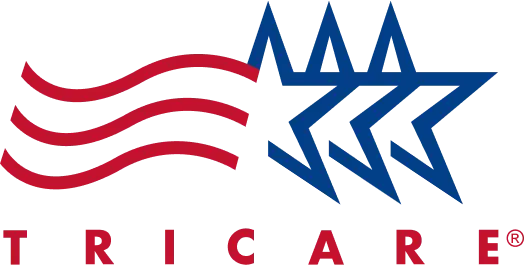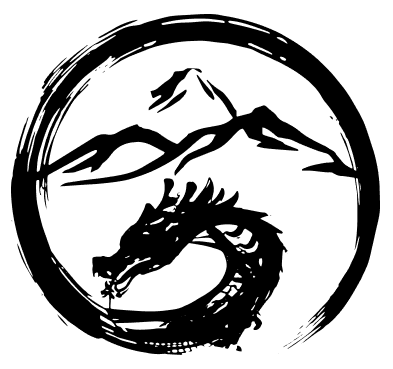Obsessive-Compulsive Disorder
Holistic Retreat & Residential Treatment Center for OCD




OCD Residential Treatment Center in California
Nestled in the serene San Jacinto Mountains of Idyllwild, California, Mental Health Residential at Wood Dragon Inn is more than just a mental health treatment center. It’s a sanctuary designed for individuals seeking comprehensive and compassionate care for a wide range of mental health conditions like obsessive-compulsive disorder (OCD). Our facility offers a retreat-like atmosphere where you can focus entirely on your recovery, surrounded by the healing powers of nature. We combine traditional treatment methods with holistic and alternative healing modalities like acupuncture and traditional Chinese medicine (TCM) to provide a well-rounded approach to mental health care.
What is OCD?
Obsessive-compulsive disorder (OCD) is a chronic mental health condition characterized by unwanted, intrusive thoughts, also known as obsessions, and repetitive behaviors or mental acts, also referred to as compulsions. Compulsions are performed to alleviate anxiety caused by obsessive and intrusive thoughts. OCD can significantly impair the daily functioning and quality of life of those whom it affects.
1. Obsessions
Obsessions are the core feature of OCD, driving the behaviors that characterize the disorder. Obsessions may include unwanted thoughts, images, or urges that cause significant anxiety or distress. Some of the most common obsessions seen in individuals with OCD include fears of contamination, aggressive thoughts, and a need for symmetry. Here are some examples of additional ways obsessions may present themselves.
- Contamination fears: Fear of germs, dirt, or illness.
- Harm-related obsessions: Fear of harming oneself or others.
- Perfectionism: Need for symmetry, order, or exactness.
- Forbidden thoughts: Intrusive thoughts related to sex, religion, or aggression.
2. Compulsions
Compulsions are repetitive behaviors or mental acts performed in response to obsessions. They are intended to prevent or reduce anxiety, but they often only provide temporary relief. Common compulsions may include excessive cleaning, checking, counting, and arranging objects in a specific order. Here are some additional compulsions that are commonly experienced by individuals struggling with OCD.
- Cleaning and washing: Excessive handwashing, cleaning, or sanitizing.
- Checking: Repeatedly checking locks, appliances, or safety measures.
- Counting: Counting objects or actions, often according to specific patterns.
- Arranging: Organizing items in a particular order or symmetry.
Signs and Symptoms of OCD
If you or a loved one are struggling with symptoms you believe could be related to OCD, understanding precisely what to look for is an essential first step on the path to seeking help. OCD can be a challenging and isolating condition, but help is available. Recognizing the signs and symptoms associated with OCD can pave the way for effective treatment and support and, in turn, the potential for improved quality of life. Here are some of the most common signs of OCD.
1. Intrusive Thoughts
One of the hallmark symptoms of OCD is the presence of intrusive thoughts. These are unwanted, distressing thoughts that repeatedly enter the mind, causing significant anxiety and discomfort. Intrusive thoughts can be about a wide range of topics, such as fears of contamination, aggressive or violent thoughts, concerns about harm coming to oneself or others, and unwanted sexual thoughts.
Despite recognizing that these thoughts are irrational, individuals with OCD often find them difficult to ignore or suppress, which is what sets them apart from others.


2. Repetitive Behaviors
To cope with the anxiety caused by intrusive thoughts, individuals with OCD engage in repetitive behaviors or mental acts known as compulsions. These actions are performed to alleviate stress and prevent feared events or situations from occurring.
Common compulsions include:
- Excessive hand washing
- Checking and rechecking locks or appliances
- Counting objects
- Counting actions
- Arranging items in a specific, orderly manner
While these behaviors may provide temporary relief, they often become time-consuming and can interfere with daily activities.
3. Avoidance
Another symptom of OCD is avoidance behavior. Individuals with OCD may go to great lengths to avoid situations, places, or objects that trigger their obsessions.
For example, someone fearing contamination may avoid public restrooms, refuse to shake hands, or steer clear of certain foods. This avoidance can significantly limit their ability to function normally and participate in everyday activities.
4. Time-Consuming Rituals
The rituals and compulsions associated with OCD can become incredibly time-consuming. Individuals may spend hours each day performing these behaviors, which can interfere with their ability to get to work on time, attend school, or engage in social activities and hobbies. This excessive time spent on rituals can lead to significant distress and impair an individual’s overall quality of life.
5. Other Symptoms
In addition to the most commonly encountered symptoms of OCD, individuals with this condition may also experience the following associated symptoms:
- Perfectionism: An excessive focus on achieving perfection can lead to indecision and procrastination. This drive for perfection can be paralyzing, making it difficult to start or complete tasks and often leading to significant delays in daily activities and responsibilities.
- Guilt and shame: Feelings of guilt and shame about OCD-related thoughts and behaviors are common among individuals with OCD. This internal struggle can have far-reaching consequences, further contributing to feelings of isolation, anxiety, and depression, creating a cycle of negative emotions that exacerbate the condition.
- Depression and anxiety: Co-occurring conditions such as depression and generalized anxiety disorder (GAD) are common among individuals with OCD. The constant battle with intrusive thoughts and compulsive behaviors can be mentally and emotionally exhausting for people with OCD. This can lead to hopelessness and sadness, making it difficult to have a positive outlook.
- Difficulty concentrating: Struggling to focus on tasks or complete activities due to the constant intrusion of obsessive thoughts is a frequent issue for individuals with OCD. These intrusive thoughts can be highly distracting and disruptive, making concentrating on work, studies, or even daily chores hard.
Early recognition and understanding of symptoms empower individuals to seek treatment and begin to regain control of their lives. At Mental Health Residential at Wood Dragon Inn in California, we provide comprehensive assessments and personalized treatment plans to address each individual’s unique needs, supporting their journey toward recovery and holistic wellness.
If you or a loved one is grappling with OCD-related symptoms, help is available. Contact Wood Dragon Inn today to learn more about your treatment options with us. Our programs are designed to help you begin healing in mind, body, and spirit, paving the way for a life of freedom and balance.


OCD Treatments and Therapies
At Wood Dragon Inn, we offer a comprehensive range of treatments and therapies to help individuals manage OCD effectively. Our unique approach combines evidence-based practices with ancient, alternative therapies to provide a well-rounded treatment plan focused on healing the whole person rather than individual symptoms. Treatment programs vary based on each individual’s unique needs. However, here are some of the most frequently utilized treatments and therapies used to treat individuals with an OCD diagnosis.
1. Cognitive Behavioral Therapy (CBT)
Cognitive behavioral therapy is a cornerstone of OCD treatment, widely acknowledged for its efficacy in treating the disorder. This therapy helps individuals identify and challenge irrational thoughts and behaviors associated with OCD. Utilizing CBT, individuals struggling with OCD and other mental health disorders learn to understand the connection between their thoughts, emotions, and behaviors and develop healthier ways to cope with their anxiety.
2. Exposure and Response Prevention (ERP)
A key component of CBT for OCD, exposure and response prevention (ERP), is widely established as one of the most effective forms of treatment for OCD. ERP involves gradually exposing individuals to feared situations while preventing the compulsive behaviors that usually follow. ERP helps individuals struggling with OCD build tolerance to anxiety and reduces the urge to perform compulsive actions, leading to long-term improvement in OCD symptoms and, thus, improved quality of life.
3. Holistic Therapeutic Treatments for OCD
Some treatment programs, including the program at Wood Dragon Inn, integrate holistic treatments alongside evidence-based modalities like CBT and ERP to support overall wellness and balance. These treatments address other aspects of health and wellness that traditional therapies do not, such as spirituality. Some examples of holistic treatments that we use at Wood Dragon Inn to help residents manage symptoms of OCD include:
- Acupuncture: This traditional Chinese practice involves inserting thin needles into specific points on the body to reduce anxiety and promote relaxation. Research supports the efficacy of this ancient practice in treating individuals with OCD.
- Traditional Chinese medicine (TCM): TCM includes herbal remedies, dietary therapy, and practices like Tai Chi and Qigong, which help improve mental and physical health.
4. OCD Medications
Medications can be a valuable component of OCD treatment and are especially effective when combined with therapy. These medications help regulate brain chemistry and reduce OCD symptoms.
Selective Serotonin Reuptake Inhibitors (SSRIs)
SSRIs are often the first line of medication treatment for OCD. They help increase serotonin levels in the brain, which can reduce the intensity of OCD symptoms. Common SSRIs used for OCD include:
- Escitalopram
- Fluvoxamine
- Fluoxetine
- Paroxetine
- Sertraline
There is strong evidence supporting the use of these medications. Effective SSRI treatment requires medium to high dosages and at least three months of acute treatment before assessing efficacy.
Tricyclic Antidepressants (TCAs)
Clomipramine, a TCA, is another first-line medication option for treating OCD, mainly when SSRIs are not effective. Clomipramine works by affecting serotonin and norepinephrine levels in the brain. Similar to SSRIs, medium to high dosages are recommended for the best results with this evidence-backed medication, and it can take up to three months to see results or improvement.
Antipsychotics
According to some research, about 40-60% of patients do not respond to first-line treatments like SSRIs or clomipramine. In these cases, atypical antipsychotic medications may be used in combination with SSRIs. Research shows benefits from this combination within approximately one month for about one-third of treatment-resistant patients with OCD. Examples of atypical antipsychotics used in the treatment of OCD include:
- Risperidone
- Haloperidol
- Quetiapine
- Olanzapine
- Aripiprazole
OCD Treatment in Southern California’s Inland Empire
Located in the heart of the Idyllwild in Southern California, Wood Dragon Inn offers a serene and therapeutic haven amidst the picturesque San Jacinto Mountains. Our spacious and warm cabin-style facility provides an ideal environment for healing, surrounded by the natural beauty and tranquility of this unique region. The peaceful mountain atmosphere offers a perfect escape from the stressors of everyday life, allowing you to focus entirely on your recovery and mental health.
Amenities at Wood Dragon Inn
Mental Health Residential at Wood Dragon Inn is not your typical inpatient mental health experience. Here are some of the unique amenities we offer our guests:
- Private and Semi-Private Rooms: Our accommodations are designed to provide a comfortable and serene living space as you journey through treatment.
- Nutritious Meals: We offer healthy, balanced meals that support your physical health and well-being.
- Recreational Activities: To enhance overall wellness, enjoy various activities, such as hiking, yoga, and meditation, integrated into your personalized treatment plan.


We Accept Most Major Insurance Providers
We believe that quality mental health care should be accessible to everyone. Wood Dragon Inn accepts various insurance plans, making receiving the care you need more accessible. Our admissions team is available to verify your insurance benefits and answer any questions you may have about coverage.








Why Choose Mental Health Residential at Wood Dragon Inn?
At Wood Dragon Inn, we believe in the power of self-cultivation and transformation. Drawing from the principles of alchemy, we emphasize the healing transformation of everyday life experiences into wisdom, compassion, and insight.
Our mission is to help you cultivate a new, healthier life by focusing on eliminating unwanted habits and nurturing positive change. Just as a horticulturalist tends to their garden, we guide you in creating the conditions for a new kind of life to emerge.
Experience Nature’s Healing Powers
If you or a loved one is struggling with OCD, Mental Health Residential at Wood Dragon Inn is here to help. Our OCD residential treatment program in California offers a unique blend of traditional and holistic therapies in a peaceful, retreat-like setting.
Take the first step towards reclaiming your life, and contact us today to learn more about our program and how we can support you on your journey to find freedom from OCD.
Frequently asked Questions
What is the last resort for OCD?
Last-resort treatments for OCD are typically considered to be surgical interventions. Procedures used to treat OCD include deep brain stimulation (DBS) and types of modern ablative surgery. DBS involves implanting electrodes in specific brain areas to help regulate abnormal activity. Ablative surgery, such as MRI-guided cingulotomy or subcaudate tractotomy, consists of creating precise lesions in brain areas associated with OCD symptoms to disrupt dysfunctional neural circuits. It’s important to note that both DBS and ablative surgery are severe steps and are reserved for the most severe and treatment-resistant cases of OCD.
How can I live with severe OCD?
Living with severe OCD requires a comprehensive and multifaceted approach. Key strategies include:
- Consistent therapy: Regular sessions with a therapist specializing in OCD, mainly using ERP and CBT.
- Medication management: Many individuals with OCD benefit from antidepressant medications like SSRIs or other psychiatric medications prescribed by a healthcare professional.
- Support networks: Building a solid support system of family, friends, and support groups can provide emotional backing and practical assistance.
- Self-care: Regular exercise, a healthy diet, and mindfulness or relaxation techniques can help manage stress and reduce OCD symptoms.
- Structured routines: Keeping a structured daily routine can help reduce the uncertainty that often triggers OCD symptoms.
- Education and awareness: Understanding the nature of OCD and educating oneself about the condition can be empowering, helping to manage symptoms better and seek appropriate help.
Can people with OCD live happy lives?
Yes, people with OCD can live happy and fulfilling lives. While OCD can be a challenging condition, many individuals successfully manage their symptoms through a combination of therapy, medication, and lifestyle adjustments. With the right treatment plan and support system, people with OCD can achieve their personal and professional goals, maintain healthy relationships, and enjoy a good quality of life. Focus on continuous treatment and self-care to nurture well-being and happiness.
What is the new therapy for OCD?
One of the newer therapies showing promise for OCD is called transcranial magnetic stimulation (TMS). TMS is a non-invasive procedure that uses magnetic fields to stimulate nerve cells in the brain. It has shown promise in reducing OCD symptoms, especially in cases where traditional treatments have not been effective.
Another emerging therapy is virtual reality exposure therapy (VRET), which uses virtual reality technology to create controlled exposure scenarios for ERP. According to some studies, VR has the potential to revolutionize OCD treatment by providing more objective, personalized, and engaging therapeutic options.
References
- Gragnani, A., Zaccari, V., Femia, G., Pellegrini, V., Tenore, K., Fadda, S., Luppino, O. I., Basile, B., Cosentino, T., Perdighe, C., Romano, G., Saliani, A. M., & Mancini, F. (2022). Cognitive-Behavioral Treatment of Obsessive-Compulsive Disorder: The Results of a Naturalistic Outcomes Study. Journal of clinical medicine, 11(10), 2762. Retrieved from: https://www.ncbi.nlm.nih.gov/pmc/articles/PMC9145175/
- Law, C., & Boisseau, C. L. (2019). Exposure and Response Prevention in the Treatment of Obsessive-Compulsive Disorder: Current Perspectives. Psychology research and behavior management, 12, 1167–1174. Retrieved from: https://www.ncbi.nlm.nih.gov/pmc/articles/PMC6935308/
- Kellner M. (2010). Drug treatment of obsessive-compulsive disorder. Dialogues in clinical neuroscience, 12(2), 187–197. Retrieved from: https://www.ncbi.nlm.nih.gov/pmc/articles/PMC3181958/
- Cocchi, L., Zalesky, A., Nott, Z., Whybird, G., Fitzgerald, P. B., & Breakspear, M. (2018). Transcranial magnetic stimulation in obsessive-compulsive disorder: A focus on network mechanisms and state dependence. NeuroImage. Clinical, 19, 661–674. Retrieved from: https://www.ncbi.nlm.nih.gov/pmc/articles/PMC6047114/
- Kim, K., Kim, C. H., Kim, S. Y., Roh, D., & Kim, S. I. (2009). Virtual reality for obsessive-compulsive disorder: past and the future. Psychiatry investigation, 6(3), 115–121. Retrieved from: https://www.ncbi.nlm.nih.gov/pmc/articles/PMC2796058/
- Mustroph, M. L., Cosgrove, G. R., & Williams, Z. M. (2022). The Evolution of Modern Ablative Surgery for the Treatment of Obsessive-Compulsive and Major Depression Disorders. Frontiers in integrative neuroscience, 16, 797533. Retrieved from: https://www.ncbi.nlm.nih.gov/pmc/articles/PMC9026193/





